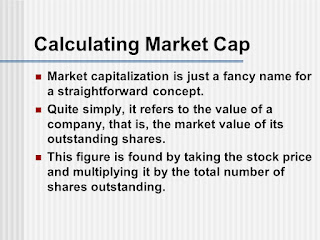Meaning & Definition :
Small cap companies are relatively small and in the early stages of their development. In India, small cap stocks tend to belong to companies with a market capitalization of below Rs. 5,000 crore. These stocks have high growth potential but come with considerable risks.
Market capitalization refers to a company’s market value based on the total number of its outstanding shares. The market regulator SEBI has defined large cap, mid cap, multi cap and small cap stocks based on their market caps. Businesses that rank 1st to 100th are large-cap, 101st to 250th are mid-cap, and those below 251st are small-cap companies.
One should know that every large or mid-cap company was once a small-cap company and the one who grows their business and sustains its profits can only graduate and step up the ladder from small to midcap or largecap company. Most of the small-cap companies have low revenues and small number of employees as compared to bigger companies.
Features of Small Cap Stocks:
High volatility
Small cap shares tend to be more volatile than mid-cap or large cap shares. These shares are more vulnerable to market corrections than large cap stocks as these companies have lower revenue streams and less diversified operations. The small cap share prices increase significantly when the markets are bullish but underperform in bearish markets.
High potential returns
Small-cap stocks are one of the highest-yielding investment options. These stocks can potentially become multi-baggers delivering over 100% returns in favorable markets. If you choose the correct stocks, you can get handsome payouts after holding them for the long term investment.
Low liquidity
Small-cap shares tend to be less liquid than mid-cap or large-cap shares. These companies are relatively new, and few investors know about them, resulting in fewer buyers and sellers. This is why small cap stocks are not suitable for short-term investments. Their liquidity and price discovery tend to improve over time.
Low price
Small-cap companies are often undervalued due to their lack of recognition. With time, such organizations gain recognition and acquire more capital as they expand. If you can buy small cap shares with solid fundamentals at an affordable price, you can make significant returns when these stocks appreciate.
Room for growth
All the mid-cap and large-cap companies of today are small cap companies of yesterday. Many small-cap companies have the potential to become mid-cap companies in the future and thus offer vast growth opportunities. Their wealth generation opportunity makes them an attractive investment option.
The list of best Small Cap Stocks are given below :
1. VRL Logistics
CMP : Rs. 614 Target : Rs. 825
3. Chennai Petroleum Corporation Ltd
CMP : Rs. 264 Target : Rs. 430
4. Shoppers Stop Ltd
CMP : Rs. 604 Target : Rs. 840
5. GMDC Ltd
CMP : Rs. 166 Target : Rs. 270
Conclusion:
Market capitalisation can play a significant role in your investment portfolio. As the share market passes through different phases, the performance of large-, mid-, and small-cap stocks keeps changing. When large-caps are not doing well, mid- and small-caps could be on the rise. And when mid- or small-caps are plummeting, the large-caps in your portfolio could steady your overall returns. So, it is important for stock and mutual fund investors to diversify their portfolio by investing across market caps. It will help your portfolio to tide you over changing market conditions.
Open demat account with India's No-1 broker ZERODHA....



.jpg)





